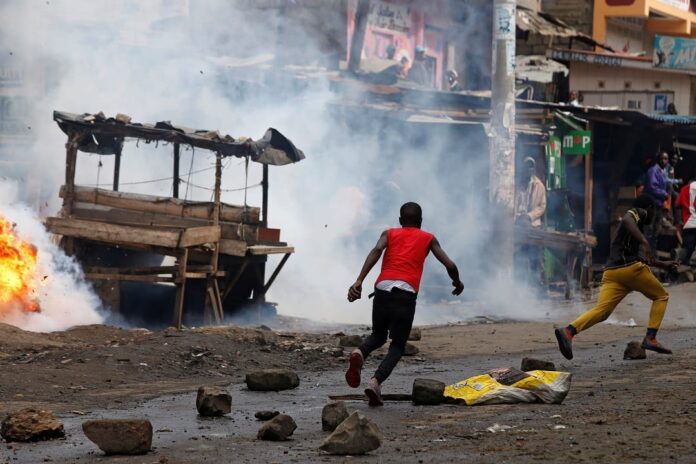by Opaluwa Eleojo Simeon,
Introduction
The educational sector—comprising universities, polytechnics, and colleges of education—has been plagued by underfunding and the failure by governments to implement their agreements with the trade unions. As a result, strikes have been common over the past 15 years. These stoppages disrupt academic progress and socio-economic stability. The strikes have not only hampered educational development but have also indirectly fuelled criminality among the youth.
This article examines the frequency of these strikes across various tiers of education, their causes, and their societal implications, with particular attention to the recent strikes of 2024 and 2025. It also explores how these disruptions contribute to criminal behaviour through the lens of criminological theories, especially the Control Theory. Finally, it offers solutions aimed at halting this cycle of industrial action.
The Frequency of Strikes in Nigeria’s Educational Sector (2010–2025)
Over the past fifteen years, Nigeria’s education sector has experienced a disturbing pattern of strikes across multiple institutions:
Universities: strikes have been frequent, with notable disruptions in 2010, 2013, 2017, 2018, 2020, 2021 and 2022 (Akinbobola 2022 and ASUU 2025).
Polytechnics: serve as critical technical and vocational training centres, have also faced industrial actions. For example, in 2018, the Academic Staff Union of Polytechnics (ASUP) embarked on a nationwide strike over funding, staff welfare, and autonomy issues, similar to university unions. The strike lasted about five months and caused significant disruptions to technical education programs (Polytechnic Journal, 2019).
Colleges of Education: responsible for teacher training, have also been affected. In 2024, the Colleges of Education Academic Staff Union (COEASU) initiated a strike over unpaid salaries, poor funding, and infrastructure decay. This strike extended for about four months, affecting teacher training programs across Nigeria (COEASU, 2024).
The strikes in this period under review across universities, polytechnics, and colleges of education underscore a systemic crisis that spans the entire education system. These disruptions have left millions of students uncertain about their academic futures and have contributed to rising societal discontent.
Causes of the Recurrent Strikes
The causes of these strikes across all tiers of Nigeria’s educational system are multifaceted:
Chronic Underfunding: The government’s failure to adequately fund universities, polytechnics, and colleges of education has led to infrastructural decay, unpaid wages, and poor staff welfare (Owolabi & Oladipo, 2019).
Salary and Welfare Disputes: The demand for better remunerations and working conditions remains a common thread. Unpaid salaries, allowances, and pensions are frequently cited grievances (ASUU, 2021; COEASU, 2024).
Autonomy and Governance Issues: Disagreements over institutional autonomy, budget allocations, and government interference have fuelled unrest across all educational institutions.
Infrastructure Decay and Overcrowding: Dilapidated facilities and overcrowded classrooms heighten staff and student grievances, fuelling strike actions.
Policy Inconsistencies and Poor Implementation: Frequent reversals and lack of sustained policy commitments exacerbate the crisis.
The strikes have been primarily triggered by unresolved issues related to funding, unpaid salaries, autonomy, and infrastructure decay. The government’s failure to honour agreements has deepened mistrust among staff and students.
How Strikes Propagate Crime and Societal Instability
The societal consequences of these persistent strikes extend beyond academic disruption, contributing significantly to criminal behaviour:
Socioeconomic Disenfranchisement
Prolonged closures of educational institutions result in increased unemployment and idleness among youth—especially vulnerable populations. Idle youth are more likely to engage in criminal activities such as theft, cybercrime, kidnapping, and political violence (Olabisi & Adebayo, 2020). The Nigerian Bureau of Statistics (2022) indicates that youth unemployment remains alarmingly high, worsened by ongoing educational disruptions.
Erosion of Moral and Social Norms
Continuous strikes weaken the discipline, moral fabric, and societal norms that formal education aims to instil. When students and graduates cannot complete their academic pursuits, some may turn to criminal enterprises for livelihood.
Recruitment and Radicalization
Crises in the education sector create fertile ground for recruitment into militant groups, criminal gangs, or political violence. For instance, insurgent groups like Boko Haram have exploited the socio-political vacuum created by unstable educational systems (Onuoha, 2012).
Control Theory of Crime and Its Implication
The Control Theory of crime, developed by Travis Hirschi (1969), argues that criminal behaviour results from weakened social bonds and societal controls. According to this theory, individuals are less likely to commit crimes if they have strong attachments, commitments, involvements, and beliefs in societal norms.
Application to the Educational Crisis:
Weak Social Bonds:
- Recurrent strikes diminish students’ attachment to educational institutions and societal norms, increasing the likelihood of deviant behaviour.
Reduced Supervision and Involvement:
- Idleness and lack of constructive engagement foster criminal tendencies.
Erosion of Institutional Control:
- Persistent disruptions weaken the authority and influence of educational institutions, further reducing societal oversight.
In essence, the ongoing crises across universities, polytechnics, and colleges of education weakens social bonds and informal social controls, fostering an environment conducive to criminality.
Solutions to Break the Cycle of Strikes
Addressing the educational crisis requires a comprehensive and systemic approach:
1. Adequate Funding: The government must prioritize increased funding across all educational tiers to repair infrastructure, pay staff, and improve conditions (Fadipe & Akinlabi, 2020).
2. Effective Negotiation and Enforcement: Establishing binding agreements, transparent dispute resolution mechanisms, and consistent dialogue between unions and government are crucial.
3. Autonomy and Governance Reform: Granting more autonomy to universities, polytechnics, and colleges of education can reduce bureaucratic delays and foster accountability.
4. Infrastructure Modernization: Upgrading facilities and ensuring the availability of learning resources will reduce grievances.
5. Strengthening Societal Control: Community engagement, youth empowerment, and job creation initiatives can reduce societal discontent and criminal tendencies among idle youth.
6. Legal Frameworks: Enacting laws that regulate and guarantee funding to educational institutions may improve the quality of education.
Conclusion
The persistent strikes across universities, polytechnics, and colleges of education reflect systemic failures in funding, governance, and policy implementation. These disruptions have far-reaching societal impacts, notably contributing to youth unemployment and criminality. The recent strikes of 2024 and 2025 underscore the urgency for comprehensive reforms. Applying criminological theories like the Control Theory highlights how weakened social bonds facilitate social deviance and crime.
Only through political will, increased investment, institutional reforms, and societal engagement can the crisis in tertiary education begin to be addressed.
References
Akinbobola, T. (2022). The Impact of Strikes on Nigerian Universities. Journal of Educational Crisis Management, 15(2), 45-60.
ASUU (2021). Annual Report on Strikes and Academic Disruptions. Academic Staff Union of Universities.
ASUU (2025). Annual Report on the 2024-2025 Strikes. Academic Staff Union of Universities.
COEASU (2024). Report on the 2024 Colleges of Education Strike. Colleges of Education Academic Staff Union.
Fadipe, S., & Akinlabi, A. (2020). Funding Challenges in Nigerian Universities. African Journal of Higher Education, 8(4), 112-128.
Polytechnic Journal (2019). Report on the 2018 Polytechnic Strike. Polytechnic Academic Staff Union of Nigeria.
Hirschi, T. (1969). Causes of Delinquency. University of California Press.
Olabisi, O., & Adebayo, O. (2020). Youth Unemployment and Crime in Nigeria. Nigerian Journal of Sociology, 27(3), 89-104.
Owolabi, S. & Oladipo, O. (2019). Funding and Infrastructure in Nigerian Universities. International Journal of Education






